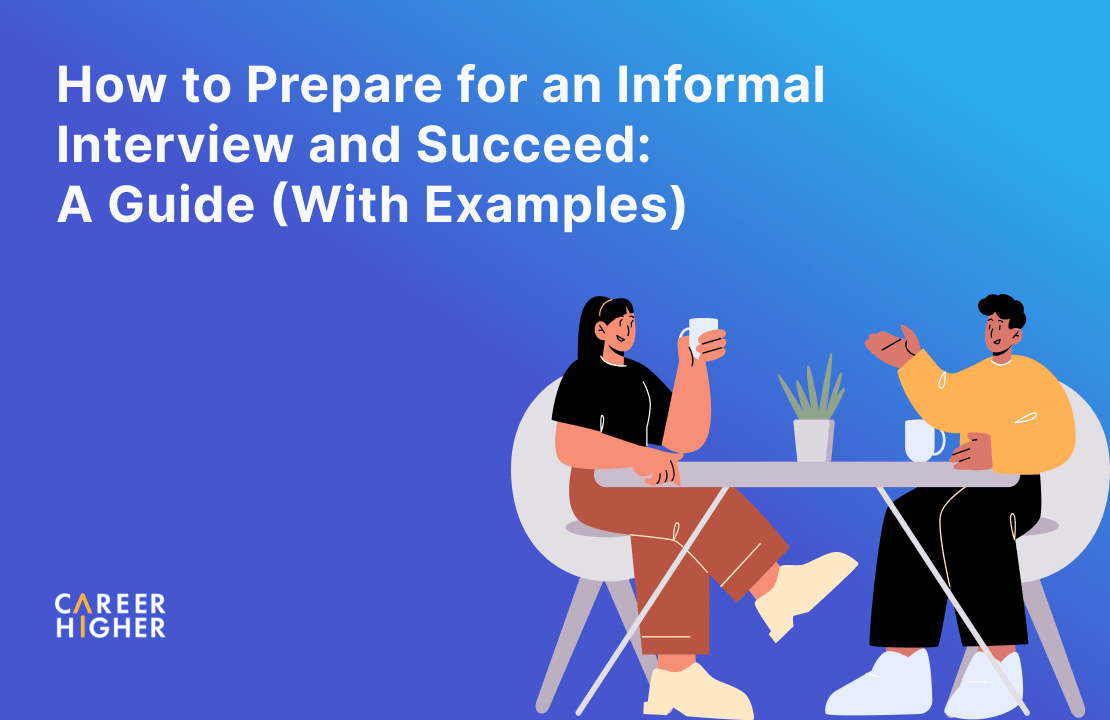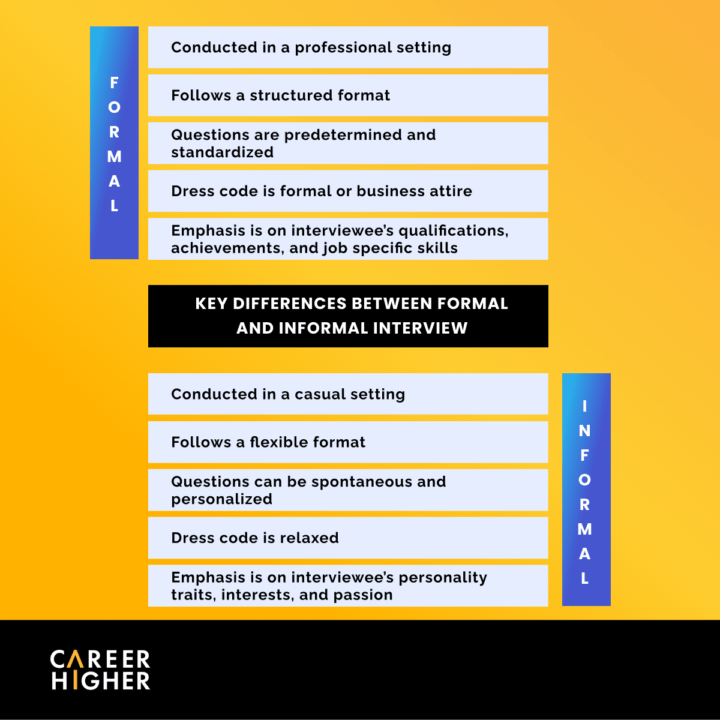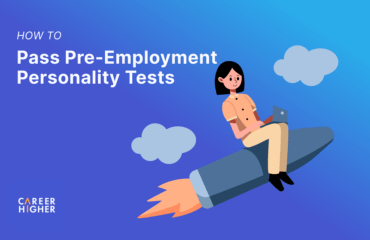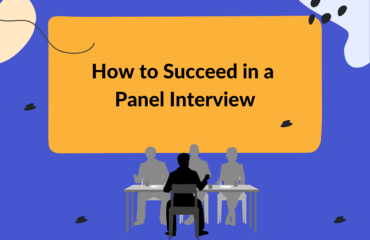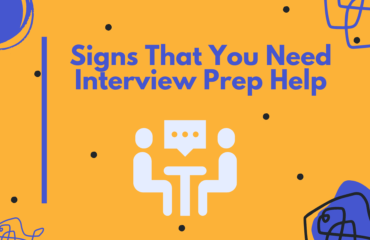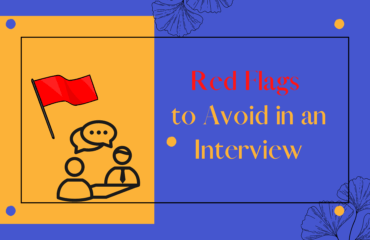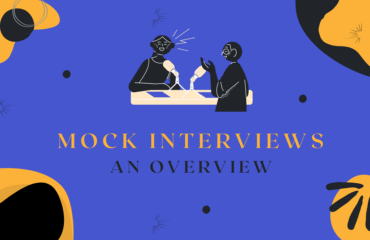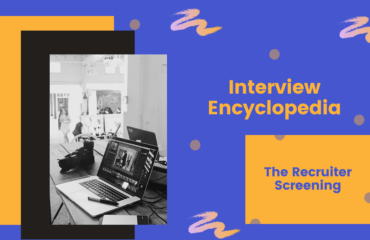Table of Contents
- What is an Informal Interview?
- Why do Companies Conduct Informal Interviews?
- How to Prepare for an Informal Interview?
- Common Informal Interview Questions with Answers
- FAQ about Informal Interviews
- 1) What should you wear to an informal interview?
- 2) What to carry to an informal interview?
- 3) Should you offer to pay?
- 4) What are the “don’ts” of an informal interview?
- 5) What questions can you ask the recruiter?
- 6) How do you follow up after an informal interview?
- 7) Does an informal interview mean that you got the job?
When you’re invited to an interview, the first thing that comes to mind is a formal setting. One where the interviewer sits across from you at a table and asks you questions that reveal your fit for the job. While this remains the most common interview type, many companies have started shifting their approach toward a more conversational approach known as an informal interview. So, how do you handle an informal interview? In this article, we present you with everything you need to know about this type of interview and how to ace it. Let’s begin with the basics.
What is an Informal Interview?
A casual or informal interview is where the candidate and the interviewer have an informal conversation at a neutral location. You may be asked to meet with the interviewer for a cup of coffee or a meal, where you talk about your career and have a quick chat about the job. It also has also become increasingly popular to hold these interviews online via video call. You will find that the questions asked are open-ended and free-flowing, as opposed to the specific questions in a traditional interview.
Why do Companies Conduct Informal Interviews?
Informal interviews enable employers to get a better idea of a candidate’s personality and assess their potential fit within the company. They also allow companies to get to know a candidate without investing significantly in the formal interview process. Companies hold informal interviews in multiple scenarios, some of which include:
a) When the company doesn’t have a specific opening: Companies generally choose to go with informal interviews when they are not actively looking for candidates for a role. Informal interviews are typically more common for higher-ranking positions or leadership roles at start-ups. This form of interview allows your potential employer to get to know you much better as a person as opposed to simply measuring your fit.
b) When the company is creating a talent pipeline: On the other hand, some companies may choose to go with informal interviews when they are still exploring the exact specifications of a role. This is where they have the freedom to mold a role to suit the candidate instead. The role may be flexible in terms of pay scale, responsibilities, or even leadership levels.
c) Referral from current employees: Candidates who have been recommended by current employees may also be subjected to informal interviews by employers. In this situation, the referral serves as a suggestion, and the business might want to learn more about the applicant before devoting a lot of time and money to the official screening process.
d) Assess cultural fit: If a company believes that a candidate’s cultural fit is a crucial criterion for a position, it may choose to conduct a casual interview session. Cultural fit means how well a candidate’s values, outlook, and manner of working match those of the employer. The goal of a casual interview is to learn more about the applicant personally and determine whether they would fit well with the workplace culture.
How to Prepare for an Informal Interview?
Like traditional interviews, effective preparation is key to a successful informal interview. The key difference between a formal and informal interview is that you need to not only prepare to answer questions but also be able to carry on a conversation, make small talk, and even ask questions of your own. Let’s see some tips below to get you started.
1) Verify the specifics of the meeting
Think of an informal interview much like meeting a new person for a cup of coffee. The first thing you’ll need to do is check in with the interviewer on the exact time and location of your meeting. It’s always good to get it by email to avoid confusion. You can also request a Google Map link to the location just to be sure.
The next thing you’d need to figure out is how you’d identify each other once in the meeting space. If you’re talking to the recruiter on LinkedIn, you could look at their display picture for reference. To alleviate any possible confusion, you can also ask the recruiter how you can find them or tell them how they can identify you.
2) Research the interviewer
The foundation of a successful informal interview is a solid conversation. Informal interviews allow you the opportunity to showcase your personality, your communication skills, and leave a lasting impression on your potential employer. But, remember a good conversation is a two-way street. It should focus only on you and your achievements. Thus, it’s a good idea to research the interviewer beforehand. Research their background, previous work experiences, and qualifications to understand their profile better. By identifying their areas of interest, you can pave the way for a more meaningful and engaging conversation.
3) Research the Company and Job
With regular interviews, you are typically provided with a job description (JD) right at the start of the hiring process. This gives you a clear indication of the skills they are looking for, as well as the type of work you will be performing once hired. However, with informal interviews, you don’t necessarily get this information beforehand.
In most cases, you will be provided with basic details about the company, as well as the job title, before the interview begins. Sometimes, you may only be told that your profile matches a potential job opening. So, it is essential that you take the time to do your own research before meeting the interviewers.
During your research, make sure to learn about the company’s history, mission, values, and culture, as well as any news or developments relevant to the job. Additionally, you should review any available job descriptions to ensure that you understand the type of work you may be asked to perform.
4) Prepare a brief introduction
Once you get to your meeting venue, it is important to create a positive first impression with the interviewer and set the tone for the rest of the meeting. Remember to greet them with a good handshake and give a brief introduction of yourself. In some cases, the interviewer may start the conversation by asking “Tell me about yourself”.
To start your introduction, you can thank the interviewer for providing you the opportunity to meet them and convey your enthusiasm for the company. Then, you can give a brief overview of your qualifications and professional background, highlighting your key experiences and future goals. You can find a sample answer in the next section of this blog.
5) Be prepared to discuss long-term career goals
Since informal interviews largely focus on open-ended discussions, one of the common features is a conversation about your long-term career goals. Keep in mind that a question about your professional aspirations is likely to arise, and not having a well-thought answer may make you seem disinterested, underconfident, or a bad fit. To avoid this, we suggest preparing a clear and effective answer beforehand. Your answer should include:
a) Skills you’d like to acquire: In your answer about the long-term, you could mention the skills you would like to foster over time. These skills could be related to the job you’re applying for, the industry or any skills that may be crucial in the future job market.
b) Future job role: In your answer, you could also mention the job position you aspire to hold in the future. However, remember your answer should be logical and in a clear direction. It’s a good idea to research the career trajectory of the role you’re seeking.
c) Professional certifications: You could also specify any certifications you’d like to earn which can help you do your job better, or prepare you for a future role. For example, if you are applying for a marketing role, you could mention your interest in digital marketing or analytics certifications. Certifications demonstrate to the employer your interest and commitment to learning.
6) Prepare for Open-ended Questions
As mentioned earlier, open-ended questions are a unique feature of informal interviews. Thus, you could expect multiple questions related to your aspirations, including your career goals, skills you’d like to earn, your ideas, and so on. Besides, you’d also have the opportunity to ask your potential employers any questions. You could ask them about the job role, scope of work, the organization, advancement opportunities, and more. It’s a good idea to prepare for some of the typical questions and what you’d like to ask beforehand.
Common Informal Interview Questions with Answers
1) Tell me about yourself
When asked this question, the interviewer is not just interested in hearing your history. They aim to discern your key characteristics, understand what drives you, and discover your interests, among other things.They want to know what drives your decisions, what you’re passionate about, and more. This gives you an opportunity to showcase your personality and work ethic to the interviewer. When answering the “Tell me about yourself” question, make sure to highlight your past journey, your current work experience, achievements, and finally what your goals are for the future.
Example Answer:
“Well, I am a creative or technology-driven person. I’ve always had an interest in <field you work in> and so after I graduated from <school and program>, I decided to take up a career in <job title>.
Over the years I’ve branched out and found interest in <related-field> and <related field>. I’ve had the opportunity to further my career by working on some amazing projects such as <projects>. There have also been a couple of stand-out incidents in my professional life such as <challenge and solution>, and <achievement>. It has been a great journey so far. Now, I’m looking to take a step further and explore other opportunities that cater to my passion.”
2) What motivates you?
This question is designed to give the interviewer an insight into what drives you at work and what inspires you to succeed. This allows them to gauge whether you have the right mindset to be successful in the role. When answering this question, shed light upon your past experiences and highlight how your motivation was linked to them, then draw parallels between those key motivating factors and the job you’re applying for.
Example Answer:
“I do not believe I can pick just one thing, to be honest. It’s always a combination of a few different things for me. But if I had to pick, there’d be two things. First and foremost, I am driven by passion. I am not the kind of person who is satisfied simply going through the motions of work or in my life. So, I always look for ways to improve myself – both personally and professionally.
Secondly, the environment I’m in would affect me greatly. I love working with people and brainstorming. So a good team where I can bounce ideas is certainly a driving factor for me. I want to work with people who challenge me and bring out my best qualities.”
3) What are some impressive achievements you’ve had?
With this question, the recruiter wants to understand two things. First, they want to know if your achievements clearly depict how you can add value to their company. Second, they want to know what role you played in your previous company’s successes. When answering this question, make sure you choose your achievements well. You’ll need to revisit your career journey, identify significant achievements, and then narrow them down by what would be relevant to this job. The goal is to show the recruiter how you can add value to the company.
Example Answer:
“I’ve worked on X number of projects over the years and each one has been a learning experience. That said, there have been a few areas where I was able to achieve significant results. <list of achievements with numbers and results>. I am of course hoping that my list doesn’t end there. Hopefully, I’ll be able to get to work on more challenging projects at my next workplace.”
4) What would you like to do next in your career?
This one is pretty straightforward. The goal of this question is for the interviewer to be able to match your career aspirations to the job itself. If you possess the skills needed to do the job perfectly, but you are not really interested in doing it in the long run, the hiring manager will be less inclined to consider you for the role. To answer this question, focus on the skills and experiences relevant to the job at hand while also expressing your long-term career goals and how they can be realized in the role you are interviewing for.
Example Answer:
“Over the last couple of years, I’ve been able to work across various roles and take up responsibilities including <role or responsibility>, <role or responsibility>, and <role or responsibility>. This has allowed me to pick up cross-functional skills that are critical to <field>.
For me, at this juncture, moving forward would mean working at a job where I can effectively combine all the skills I’ve gained over the years. I am hoping to work in a managerial position as I believe this would be the best use of my accumulated skills.”
5) Tell me about a difficult decision you made at work and how you made the choice.
This question focuses on your decision-making skills and your ability to make good choices under pressure. In asking you this question, the recruiter is looking for you to share anecdotes that reflect on your thought process, the reasoning behind your choices, and the outcome. They would be able to estimate your problem-solving ability based on your response.
Whether you are applying to a leadership role or not, you may be required to have some level of ownership at work. Your response would speak to how well you’d be able to handle this. Make sure your answer elaborates on the challenge, the considerations before making the decision, the choice, and the result. Where possible, add in data and numbers as these prove to be clear indicators.
Example Answer:
“A couple of months ago, we had to find a solution for a problem that caused <explain the effect the problem had on your business>. We needed to solve it at the earliest so we could achieve <results or targets>.
I’ve always had an analytical approach to problem-solving. So, I started by looking at the data. <elaborate on the types of data you’ve looked into: historical data, market statistics, and so on>. Based on the data, I concluded that there’d be a few ways to handle the problem. <Briefly touch upon the options> Either could have led to a favorable result. I chose to go with approach A since <reasoning>.
In the end, we did achieve what we set out to do. With <results> in as little as <time>. So I’d say, the data rarely lies.”
Other Common Questions To Prepare For
- What is your biggest weakness?
- Where do you see yourself in five years?
- What are the activities you enjoy outside of work?
- Why are you looking for a new job?
- Let’s say you had to achieve <goal>. How would you go about it?
- How would you handle a task where you don’t know what to do?
- If you had to pick a favorite company, what would it be (apart from this one)?
- Have you ever faced a difficult situation with a colleague or client? How did you handle it?
- What type of work environment do you prefer?
FAQ about Informal Interviews
1) What should you wear to an informal interview?
This is a fairly common question. You are not expected to wear business attire to the interview. An informal interview is more relaxed and casual clothing is usually acceptable. However, we recommend avoiding wearing anything too casual like shorts, t-shirts, or flip-flops.
A pair of jeans and a button-down shirt are usually a safe bet. You may also want to dress based on the place you’re meeting at. If you’re going golfing, you’d need to dress appropriately. And if you’re going to a nice restaurant, then you’d need to go with something more formal.
2) What to carry to an informal interview?
Unlike a formal interview, you won’t be given a call letter to carry. You are also not required to carry your resume, but we’d suggest you do. This would make it easier to talk about your previous experience. Apart from a resume, you’d want to carry a few things that could help through the interview, such as:
- A note-pad for brainstorming
- A pen or pencil
- Your business card (if you have one)
- Your laptop
3) Should you offer to pay?
The etiquette surrounding an informal interview can be confusing. When attending an informal interview, you are not obligated to offer to pay for the meal or coffee. The interviewer is generally provided with a budget from the company. So, there’s no need for you to offer to contribute anything towards the meal. However, you can certainly express your appreciation at the end of the meeting by saying thank you.
4) What are the “don’ts” of an informal interview?
The structure and flow of an informal interview can often blur the lines of what is appropriate. You now have a clear idea of the steps you should take before and during the interview. Let’s now glance over what you may not want to do:
a) Not being prepared: At the end of the day, even when informal, you are still being interviewed. Appearing unprepared can make you seem uninterested in the role or unfit for the job position.
b) Over-sharing: Since informal interviews seem relaxed, it’s not uncommon that some candidates accidentally let their guard down and share too much information. Remember that all the information you share will directly contribute to the hiring decision.
c) Talking exclusively about yourself: While it is true that the interview is about you, you’ll still need to make sure that your responses focus on the job and your prospects. Talking too much about yourself can be perceived as being arrogant and self-centered, which is exactly not the kind of impression you want to leave on the interviewer.
d) Sharing referrals: Sometimes, recruiters choose to go with informal interviews in the early stages when the job role has not fully taken shape. At this stage, they would be looking to talk to as many candidates as possible and evaluate various profiles. Hence, sharing a referral at this stage is not appropriate. Wait until the recruiter reaches out to you before making the introductions.
5) What questions can you ask the recruiter?
While the interviewer may come prepared with a set of questions to ask you, it is important to note that you too can put forward your queries. We’d suggest that you ask a few questions since it would show genuine interest in the job. Here are a few great questions you can ask the interviewer:
- Could you tell me why you decided to reach out to me?
- What are the current openings you have at the company?
- How do you envision us working together?
- What are some of the challenges the business is facing right now?
- What do you love about the company?
- What do the next 12 months look like for the company?
6) How do you follow up after an informal interview?
With regular interviews, it is customary to send a follow-up email after the interview. This is also a good idea for informal interviews. It can help solidify a positive impression of you in the mind of the hiring manager. We recommend that you send a follow-up email soon after the interview. Here’s what you could include:
- Start by adding a note of thanks
- Make a mention of the highlights of your conversation
- Talk about a few things you enjoyed discussing
- Put in any questions you may have
- Finally, proofread your email and ensure there are no errors before sending it out.
7) Does an informal interview mean that you got the job?
Many candidates who’ve given informal interviews often ponder if their meeting was successful. While the answer to this question depends on several factors, there are signs that may point in the right direction. If your informal interview was the final stage in a lengthy hiring process and management has a clear direction, chances are good that an offer will be extended.
During the conversation, look for cues that indicate the interviewer is impressed. For example, if the interviewer seems to be leaning in, nodding, and maintaining good eye contact, it could indicate that they are interested and are considering you seriously for the position. If the interviewer compliments your qualifications, skills or experiences, it could also be a positive indicator that they are impressed with you and would extend an offer. However, it’s important to keep in mind that positive cues don’t necessarily indicate a job offer, and it’s a good idea to ask the interviewer about the next steps in the recruitment process to assess the likelihood of a job offer.
Casual interviews seem deceptively simple, with the word “casual” baked right into them. As a candidate, we suggest that you approach them with the same seriousness as you would approach a traditional interview. Preparing for the interview is of paramount importance as it lets you put your best foot forward. Still unsure about how to prepare for an informal interview? Consider reaching out to our interview specialists to help you out.
*This article is co-authored by Deesha N.
